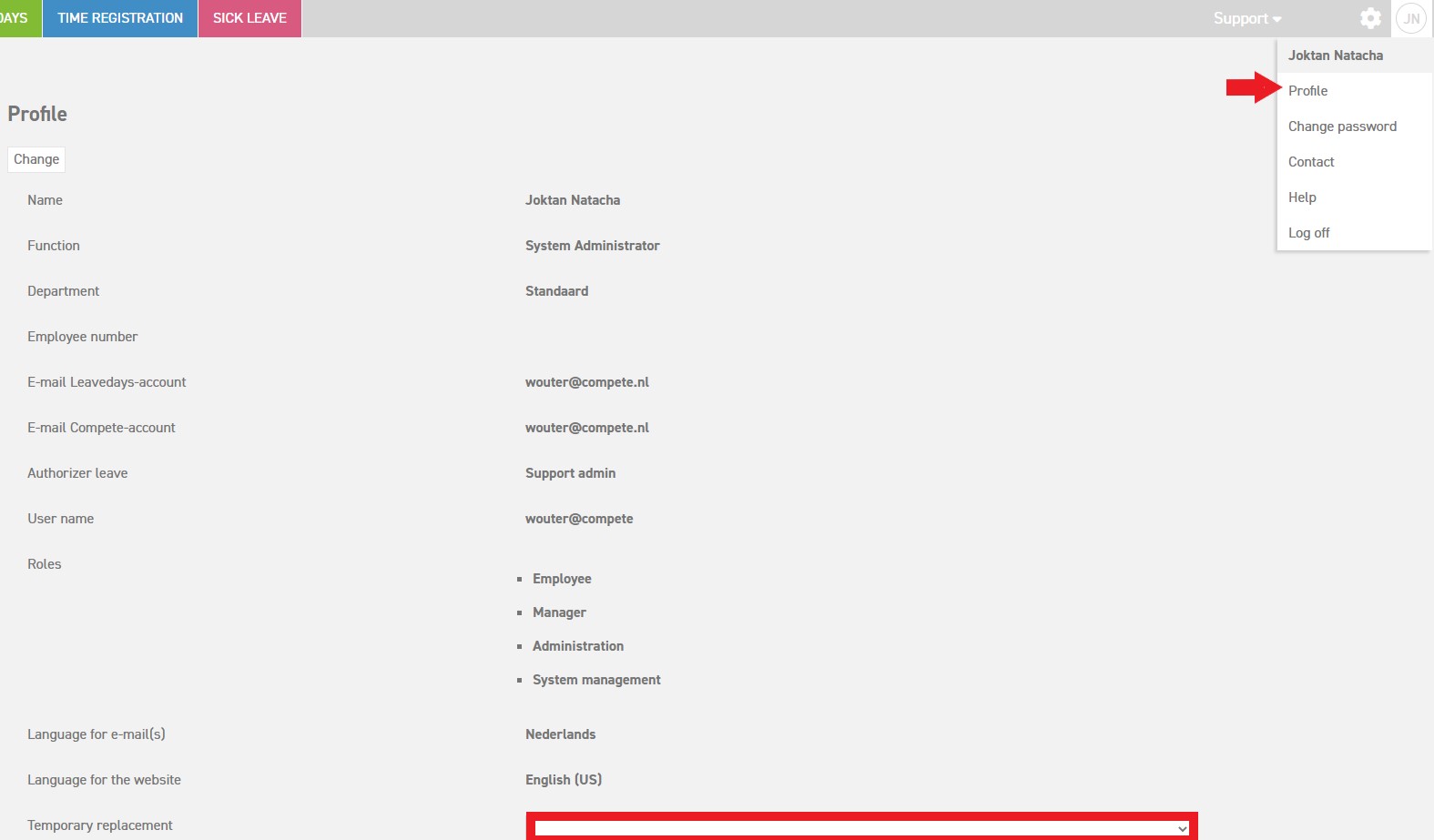Temporary Replacement: Your Ultimate Guide To Seamless Transitions [EP 2]
Imagine this—you're in the middle of a project, and suddenly, someone key steps out. What do you do? Enter the world of temporary replacement. It’s not just about filling a gap; it’s about keeping the show running smoothly without missing a beat. Whether you're managing a team or navigating personal responsibilities, knowing how to handle temporary replacements effectively is a game-changer. So, buckle up as we dive into this essential topic.
Temporary replacement isn’t just a buzzword; it’s a lifeline for businesses and individuals alike. In today’s fast-paced world, the ability to adapt and find quick solutions is crucial. Whether it’s a temporary employee stepping into a role or a backup plan kicking in, the concept of temporary replacement is more relevant than ever.
This guide will take you through everything you need to know about temporary replacement. From understanding its importance to mastering the art of seamless transitions, we’ve got you covered. So, let’s get started, shall we?
Read also:Why Vegmovies Korean Is Your Ultimate Destination For Plantbased Korean Cinema
Why Temporary Replacement Matters
Understanding the Need
Let’s face it—life happens. People get sick, emergencies pop up, and sometimes, key players just need a break. That’s where temporary replacement comes in. It’s like having a spare tire in your car—it’s there when you need it most.
Temporary replacement ensures that operations continue smoothly without disruption. It’s not just about filling a position; it’s about maintaining productivity and meeting deadlines. Whether you’re in the corporate world or running a small business, having a solid temporary replacement strategy is essential.
Benefits for Businesses
Temporary replacement offers a host of benefits for businesses. For starters, it helps maintain continuity. When a key employee is unavailable, having someone step in ensures that projects stay on track. Plus, it gives businesses the flexibility to scale up or down as needed.
Here are some key benefits:
- Minimizes downtime
- Keeps projects on schedule
- Reduces stress on remaining team members
- Provides an opportunity to test new talent
Key Factors in Temporary Replacement
Skills and Qualifications
When it comes to temporary replacement, skills and qualifications are non-negotiable. You want someone who can hit the ground running and contribute immediately. This means having a clear understanding of the role and what’s expected.
It’s also important to consider soft skills. Communication, adaptability, and teamwork are crucial traits in a temporary replacement. After all, they’ll be working closely with your team, and a good fit can make all the difference.
Read also:9kmovies Your Ultimate Guide To Streaming Movies Online
Timeframe and Expectations
Defining the timeframe and setting clear expectations is vital. Is this a short-term solution, or could it lead to something more permanent? Communicating these details upfront helps both parties understand the scope of the arrangement.
Additionally, setting measurable goals can help track progress and ensure that the temporary replacement is meeting expectations. Regular check-ins and feedback sessions are also beneficial in keeping things on track.
Types of Temporary Replacement
Short-Term vs. Long-Term
Temporary replacements can be categorized into short-term and long-term. Short-term replacements are ideal for covering vacations, sick leaves, or unexpected absences. They’re usually in place for a few weeks or months.
Long-term replacements, on the other hand, are more involved. They might step in during extended leaves of absence, such as maternity leave or sabbaticals. These positions often require a deeper understanding of the role and may involve more training.
Contractors vs. Temporary Employees
Another distinction to consider is contractors versus temporary employees. Contractors typically work on a project basis and may have more specialized skills. Temporary employees, on the other hand, are often brought in to fill a specific role for a set period.
Both options have their pros and cons, so it’s important to evaluate your needs and choose the best fit for your situation.
Best Practices for Temporary Replacement
Planning Ahead
One of the best ways to ensure a successful temporary replacement is by planning ahead. Identify potential candidates, create a detailed job description, and establish a clear onboarding process. This preparation will save time and reduce stress when the need arises.
Having a talent pool of qualified candidates can also be a huge advantage. Whether it’s through staffing agencies or your own network, having a list of potential replacements ready to go can make the transition smoother.
Training and Onboarding
Training and onboarding are critical components of temporary replacement. Even if the candidate has the right skills, they need to understand your company’s specific processes and culture. Providing a comprehensive orientation can help them integrate quickly and effectively.
Consider creating a welcome packet that includes essential information, such as company policies, contact details, and any tools they’ll need to succeed. This small gesture can go a long way in making them feel welcomed and prepared.
Challenges and Solutions
Common Challenges
While temporary replacement can be a lifesaver, it’s not without its challenges. One common issue is resistance from existing team members. They may feel threatened or unsure about how the new person will fit in. Addressing these concerns openly and honestly is key to overcoming this hurdle.
Another challenge is ensuring that the temporary replacement has the necessary support. They may face initial difficulties in adapting to a new environment, so providing guidance and resources can help ease the transition.
Solutions and Strategies
To tackle these challenges, consider implementing some tried-and-true strategies. Encourage open communication and create opportunities for the temporary replacement to bond with the team. This can be as simple as scheduling a team lunch or organizing a welcome session.
Additionally, assigning a mentor or buddy to the temporary replacement can provide them with a go-to person for questions and support. This not only helps them feel more comfortable but also fosters collaboration and teamwork.
Case Studies and Success Stories
Real-Life Examples
Let’s take a look at some real-life examples of successful temporary replacements. One company faced a sudden departure of their marketing manager just before a major campaign launch. Instead of panicking, they brought in a seasoned contractor who had experience in similar campaigns. The result? The campaign was a huge success, and the contractor even stayed on for a few more months to help with follow-up projects.
Another example involves a small business owner who needed a temporary replacement during a family emergency. She hired a local college student with a background in business administration. The student not only kept things running smoothly but also brought fresh ideas to the table, leading to increased sales during her tenure.
Lessons Learned
These case studies highlight the importance of flexibility and adaptability in temporary replacement scenarios. They also underscore the value of finding the right fit and providing adequate support. Whether you’re a large corporation or a small business, these lessons can be applied to ensure a successful transition.
Data and Statistics
The Numbers Speak for Themselves
According to a recent survey, 70% of companies use temporary replacements to fill gaps in their workforce. Of these, 85% report that temporary replacements have a positive impact on productivity. These numbers highlight the growing importance of temporary replacement in today’s business landscape.
Another interesting statistic is that companies that invest in proper training and onboarding for temporary replacements see a 25% increase in overall efficiency. This underscores the value of preparation and planning in ensuring a successful transition.
Future Trends in Temporary Replacement
Technology and Innovation
As technology continues to evolve, so does the field of temporary replacement. Advances in digital tools and platforms are making it easier than ever to find and manage temporary replacements. From online job boards to AI-driven matching systems, the possibilities are endless.
Remote work is also becoming a more viable option for temporary replacements. With the rise of virtual collaboration tools, it’s now possible to hire candidates from anywhere in the world. This opens up a whole new pool of talent and flexibility for businesses.
Sustainability and Ethics
Looking ahead, there’s a growing focus on sustainability and ethics in temporary replacement. Companies are increasingly prioritizing diversity and inclusion in their hiring practices. They’re also considering the environmental impact of their operations, such as reducing travel for interviews and onboarding.
As consumers become more conscious of these issues, businesses that adopt ethical and sustainable practices in their temporary replacement strategies are likely to gain a competitive edge.
Conclusion
In conclusion, temporary replacement is a vital component of modern business operations. Whether you’re dealing with short-term absences or long-term transitions, having a solid strategy in place can make all the difference. By understanding the key factors, implementing best practices, and staying ahead of trends, you can ensure a seamless and successful transition.
So, what’s next? Take action! Start by evaluating your current temporary replacement processes and identifying areas for improvement. Share your thoughts and experiences in the comments below, and don’t forget to check out our other articles for more insights and tips.
Table of Contents
- Why Temporary Replacement Matters
- Key Factors in Temporary Replacement
- Types of Temporary Replacement
- Best Practices for Temporary Replacement
- Challenges and Solutions
- Case Studies and Success Stories
- Data and Statistics
- Future Trends in Temporary Replacement
- Conclusion
Duane Lee Chapman Jr: The Man Behind The Badge And Beyond
Sydney Sweeney On Handmaid's Tale: Rising Star In A Gripping Saga
Hyungry Temp: The Ultimate Guide To Exploring Korea's Hidden Food Gems

Immerse Yourself In The Heartstopping Finale Of "Temporary Replacement

Temporary Replacement synonyms 66 Words and Phrases for Temporary

Temporary replacement Leavedays Support